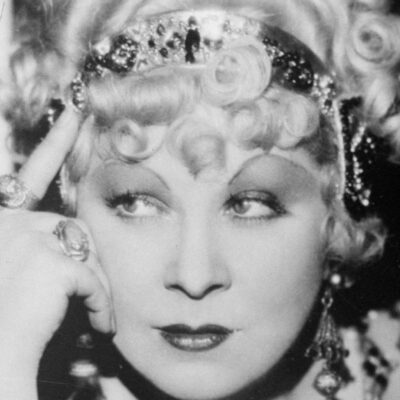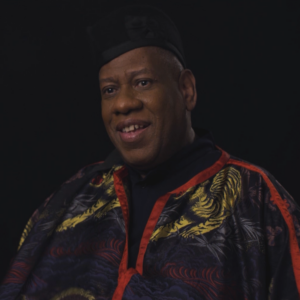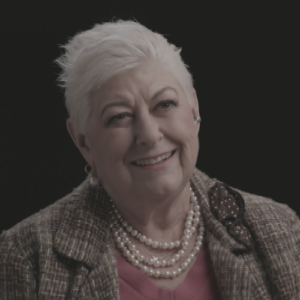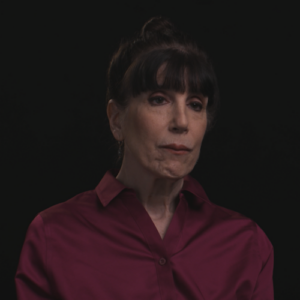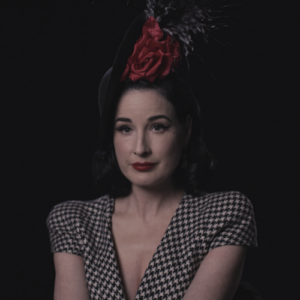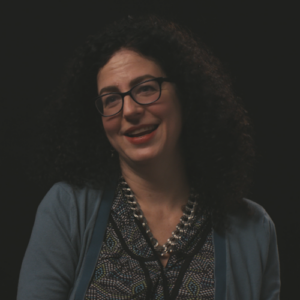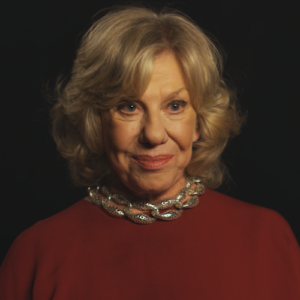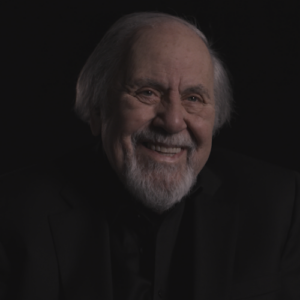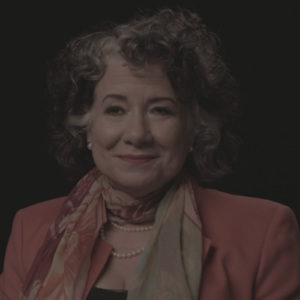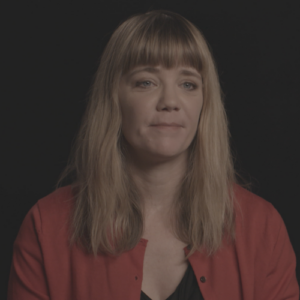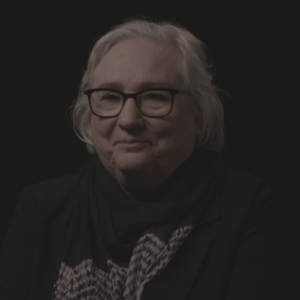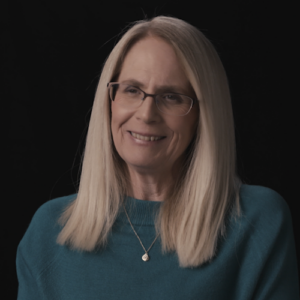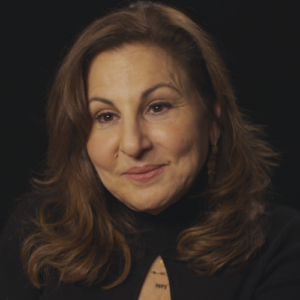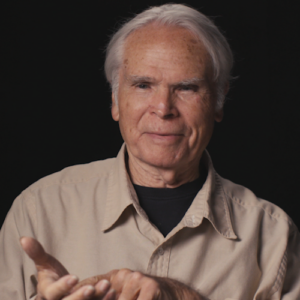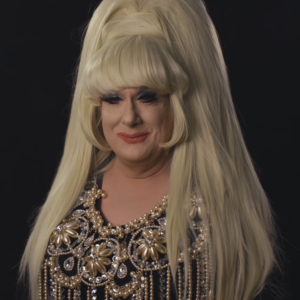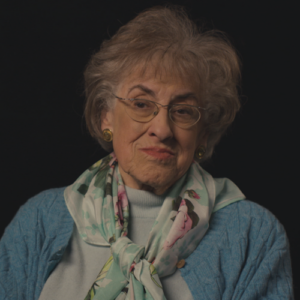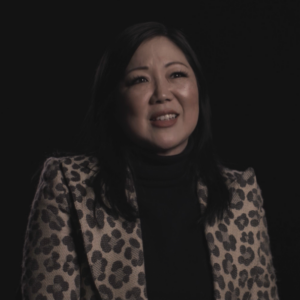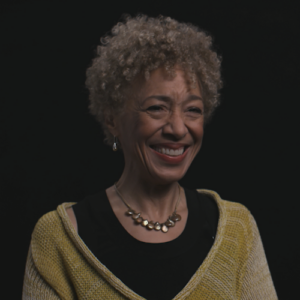Interviewer: How did you first get introduced to Mae?
Pamela Wojcik: I saw Mae West movies in the seventies on the local UHF station. You know, they’d have movies at noon and two and four. And in the seventies and sixties, there was this nostalgia for the thirties. So they were often showing Mae West films along with Fred and Ginger or the Marx Brothers. So I saw them in and then there were also Mae West Curios in stores at the time. So I knew her image very well and sayings, you know, you’d see sort of ideas of her circulating. And then in the nineties, when I was writing my dissertation about feminist camp, I circled back to Mae West and then really dug in and saw all the films and read the plays and learned a lot more about her.
Interviewer: Right to the, the, the curious and the sort of nostalgia thing. Is that part of the the sort of power of the sixties? I’m curious about the sort of the resurgence in interest in her image then.
Pamela Wojcik: Yeah, I think there’s a lot of different things that come together. I think pop art. I think the rise of retrospective theaters, particularly in college campuses, created a kind of new interest in Mae West, along with other throw stars and a nostalgia for the thirties, particularly that you see in things like, you know, Bonnie and Clyde, right? A return to the thirties. But Mae West particularly, I think sort of as an icon, emerges very strongly in that period. And in the sixties she becomes very present again. So she has an appearance on Mister Ed in 1964, I think. And then she is honored by a USC fraternity. She’s on the cover of Life magazine in 1968, a two page foldout. She’s on Sgt Pepper, the cover of the album, and she becomes very present again. So then in 1970, she has her Playboy interview. So there’s this real interest in her then, and I think as a signifier of the past, but also as someone very unique and kind of available to a kind of pop camp reading.
Interviewer: The Sgt Pepper cover. It’s it seems sort of that nostalgia thing. Is it is there something camp with that cover as well?
Pamela Wojcik: I think so. I mean, nostalgia and camp aren’t the same thing, but camp, some versions of camp have a kind of historic sizing impulse. So something that comes from an earlier period that is no longer the dominant, no longer kind of read in the same way becomes available to be recoded. And I think Mae West is being recoded in the sixties and seventies. That’s a point when she’s showing up in things like Sex Tet and Myra Breckinridge and kind of being rediscovered. But in a way, as someone who’s not relevant or powerful in the same way that I think she was in the thirties.
Interviewer: I’m just curious in terms of the nostalgia of the sixties, why, why the thirties? Why that era?
Pamela Wojcik: I think there’s a tendency the way nostalgia works generally is sort of to go to the generation or so before you were born. Right. I have a friend who claims that, you know, we all turn to that so that, you know, I’m born in the sixties, so I’m like the fifties, you know, my daughter likes the eighties. I don’t know if that’s true, but I think that part of it is that with TV, you’re getting all of the classic Hollywood kind of regurgitated through TV showings and that the theaters are accessing it. So I think it becomes very present and available in the sixties. But it’s also, I think, a generation looking to its parents artforms in some way.
Interviewer: So going back just for a person who has never heard of Mae West, how would you describe. I haven’t heard her her persona, her character.
Pamela Wojcik: The character is almost always a performer, sometimes in the circus, sometimes kind of saloon culture. Sometimes she plays a movie star. She’s covertly a prostitute. She’s never explicitly a prostitute, but she’s always sort of perceived as different from other women. She, at one point in one of the films, refers to herself as finest woman who ever walk the streets. She’s sexually aggressive, very forward in her attentions to men. She’s supremely self-confident, narcissistic, even absolutely sure of her own sexual appeal. She’s witty. She tosses off one liners at a rapid fire, where you can miss a lot of the jokes as she goes and a lot of double entendre. And she has a kind of swagger. You know, she sort of struts.
Interviewer: Something had written about the turn of the century. The feminists were kind of split into two terms of what they were focusing on the political and sexual freedom. Right. Can you just sort of talk about a little bit? We don’t have any of that.
Pamela Wojcik: Okay. So turn of the century feminists, most of the energy is directed toward equal rights and suffrage. But there is a contingent that’s concerned with things like abortion, birth control, sexual freedom, prostitution, and they’re in conversation with each other. The sort of sexual feminists come to the fore more strongly after the turn of the century, and the new woman becomes a figure of sexual freedom, as well as other kinds of equality. And all of those are sort of in the mix together.
Interviewer: So if you’re a teenage male west, then cash or. Mm hmm. Um, what, uh, what was, what would that mean to it? To us? You know, a working class girl like me who was coming up working in theaters and and that kind of feminist sexual freedom influence.
Pamela Wojcik: I think with Mae West, you don’t have someone who’s going to be influenced by activists per se, or feminists. I don’t think she’s paying attention to feminists, but I think growing up in Brooklyn, I think she’s growing up in a social milieu where working class women are finding themselves having a lot of freedom, a lot of mobility in the public sphere. They’re engaged in different activities, including work, going to amusements, things like amusement parks, dance halls where they’re able to express themselves freely. They’re getting a little bit of freedom from parental supervision, partly in the tenements, because the apartment is so small that they have to go out to the street to do any kind of courtship. And there’s new kind of sexualized dancing. There’s a lot of flirting at work and a lot of sexual harassment as well. And I think that she’s growing up in a milieu where working class women are experimenting freely, and that has a big influence on her. And her mom has that background as well. And her mom has a lot of influence and gives her a lot of freedom.
Interviewer: Her mom has that background and what.
Pamela Wojcik: Her mom comes up in that kind of tough girl environment where she’s experiencing newfound freedoms, where she’s out and about doing things. She has ideas about how to raise money that give her freedom and particularly sexual freedom. I think I think she encourages a lot of her activities.
Interviewer: Yeah. You know, the tough girls thing. Mm hmm. Is this a stretch where we’re sort of the tough girls paved the way for flappers by sort of mainstreaming this this kind of good time gal thing? Is there a relationship between the two?
Pamela Wojcik: I think tough girls and flappers exist in tandem, but it’s not a causal relationship. I think the tough girls are the working class white ethnic girls who. You are now engaged in sort of different activities in the public sphere. So they’re engaged in work, public amusements, sort of sexual dancing. Flappers, I think, tend to be coded much more middle to upper class. And so their freedoms are happening in convertibles and glamorous gowns and country clubs and nightclubs. Right. But the tough girls, it’s much more of the dance hall. And I think that they’re both part of a movement toward increased sexual freedom for women, but sort of different sides of the coin in terms of class.
Interviewer: Do tough girls sort of along the lines of the way there’s you know, there’s a terrible neighborhood and they kind of colonize it and then they make it safe for the richer people to come. Did tough girls do that for flappers?
Pamela Wojcik: I don’t think tough girls paved the way for flappers. I think they’re happening at about the same time and they’re happening in different spheres. I think that the tough girls are under a different kind of scrutiny by middle class reformers who are finding their behavior appalling. You know, there’s a lot of efforts to police women, police, how they’re dressing, how they’re behaving, what’s happening in the dance halls, what’s happening on the street corners that’s different from the attention to flappers, because the flappers are operating in more rarefied circles, I think.
Interviewer: Right. And May is fully a tough girl. She’s born. Right. She comes up right in that window.
Pamela Wojcik: May is definitely part of the milieu of the tough girls and that she would be very much defined by her class, by her ethnicity, by her accent, and that she’s very much a Brooklyn girl.
Interviewer: Great. So this is a bit of a joke, but I guess not that much, cause she was 17.
Pamela Wojcik: Frank Wallace. Mm hmm.
Interviewer: We’re just introduced into the story.
Pamela Wojcik: Frank Wallace is a song and dance man who may would have met on the vaudeville circuit. They had an act together for some time. Little songs and sketches. They got married. Mae was 17. She lied and said she was 18. This was 1911. Supposedly, they never lived together. May says they never shared a home. They parted company and went their separate ways. The reason for the marriage is probably because Mae was sleeping around, thought she might get pregnant. She better have a husband. They split. They never had contact for decades. And then in the thirties, when Mae started to become famous in Hollywood, someone dug up the marriage certificate and Frank Wallace came forward and tried to get a little bit of money from Mae, but then later said he was pushed into it. So this was her one marriage that she regretted and never married again. And he never had very much of a career beyond his time with Mae.
Interviewer: So the fallout of him coming back, what is it? It’s it’s she’s less appealing character for being single’s, less appealing character for being older.
Pamela Wojcik: I think when he comes back, it’s the surprise that she’s married because that goes against the grain of her sort of determinedly single behavior and attitude and frequent comments about marriage not being something she’s interested in at all. So it works against her image in some way, but I think it also produces a lot of sympathy for her because it’s a moment when someone comes out and is sort of trying to denigrate her and she stands up to it. She initially denies it and then sort of dismisses it, and I don’t think it does terrific harm to her.
Interviewer: All right. So we have this audio of Bay where she’s talking about how she was basically analyzing her audience and sex. And it was all men saying, how do I get the women? And that she created that the diamond little character because it would be more accessible to women. So I guess well for one thing, do that kind of savvy. Is that something that you see throughout her career or is it more when she’s first setting herself up?
Pamela Wojcik: I think Mae West is very savvy. I think she’s very savvy about her audience so that when she creates Diamond Lil, she creates it to appeal to women. And she does that partly by setting it in the 1890s, having these glorious costumes, you know, with the sort of corset and the feathers and all of these sort of ornate details which she thinks will attract women. I think as her career goes on, she’s incredibly savvy earlier on in making, in writing sex and in fighting it in court. She knows she’s courting controversy and she does that very deliberately. She knows what it gets. Her. It increases her profile. It gets her more money when she puts on the drag and she knows that it’s going to get her in trouble because she’s hired, you know, whatever, 200 gay men from Greenwich Village and just said go. And that court’s a lot of controversy. But then when she gets to Hollywood, she knows how to play that as well. You know, she’s brought in to be the bad girl and she knows how to work that. And she’s incredibly savvy as her film career diminishes. She turns to radio, she turns to the stage, even coming back to something like Myra Breckinridge and Sex Tat. She keeps working her image and she keeps appealing. She writes health books. She writes an autobiography. I mean, she does a lot of things. She’s a very good businesswoman and she’s always sort of finding the new market. And she understands her market from women. She understands gay men as her market. She understands her appeal as a camp figure for gay men. She says camp is the kind of comedy where they imitate me. So I think she’s incredibly savvy throughout.
Interviewer: And she masters her brand also.
Pamela Wojcik: Very modern. Yeah, she is very modern and she is very conscious of sort of the Mae West character, you know, in a way that isn’t her, you know, But she puts it out there, she markets it, she maintains it. So any time you see sort of the real me in her apartment, for example, you know, she’s lounging on a bed. There’s the mirrored ceiling, you know, always with the sort of growling, purring kind of sexual innuendo. You know, she never stops it. And I think that is the brand that she puts out.
Interviewer: Great, great. And something the 1890s does that just does creating that distance time always enable her to say things that she couldn’t get away with in a present day setting. What is what is made setting it in the past sort of give her that a present day setting wouldn’t.
Pamela Wojcik: I think her use of the 1890s works in a few different ways. One of them is it makes sense of her body because she is curvy, right? She doesn’t look like a sort of thirties figure who’s very lean, even gaunt, so that the corseted figure makes sense of her body. But I think it also it displaces her comedy from the present, which on the one hand lets her get away with things she wouldn’t be able to say in the present. She can say these outrageous things, but because they’re happening in this sort of other place, other time, they don’t seem potentially as threatening. And I think they’re also funnier because they’re coming out of a woman who wouldn’t possibly be speaking like that or acting like that in that milieu.
Interviewer: That’s a great point. Yeah, it’s and she and she said, I think this was in her autobiography, she talks that she first herself was the woman’s ego.
Pamela Wojcik: She talks about herself as the woman’s ego. She says that women would imitate her and fan magazines of the time would describe women doing the walk or kind of trying to talk like Mae West, sometimes wearing corsets. She popularized the corset again in the movie Go West, Young man. Theme tais is it? And it has a young aunjanue who sort of is aspiring to be like Mae and to be sexual. And she imitates her. And then in the same movie, an older woman who’s marked as a spinster also doesn’t she doesn’t more comedically. And I think that that idea of women sort of wanting to identify with her and wanting to imitate her and gain access in some way to some of her sexual power is is a strand that you get in a lot of the fan materials of the time.
Interviewer: And it’s it’s really interesting. And it goes back even further than that, doesn’t it? She talks about seeing women imitating her at intermission.
Pamela Wojcik: Well, she’s very imitate able and I think the women imitate her early on and continue. And then I think, of course, gay men imitate her very strongly and that her the degree to which she can be imitated is a key to her kind of ongoing kind of camp presence in gay male culture. But also I think in feminist camp.
Interviewer: See the being imitated. It’s you can put it on and put on the outfit, you put on the accent. It’s like a costume kind of.
Pamela Wojcik: Yeah. I think that particularly the idea of her that gets sort of boiled down to a walk, a pose, right? People always do this, even though I don’t think she really does that much in the movies. Certain one liners, you know, the sort of come up and see me some time and a kind of way of speaking the kind of growl that Mae West puts on. I think our sort of the condensed version of who people think she is and that that’s what gets imitated.
Interviewer: But this jumping ahead a little bit. But at what point do you think she stops being like a star and becomes this kind of icon, this iconic figure that’s down to the essential elements of the.
Pamela Wojcik: I think post Hollywood, when she starts to do the Vegas show in the fifties, you know, she’s basically performing a kind of cartoon version of herself. She’s carried out by, you know, a slew of sort of musclemen, including Mickey Hart, a gay, the father of Mariska Hargitay and Mays lover. At some point. And she comes out and, you know, it’s all kind of over-the-top performance. She’s no longer playing characters. It’s no longer narratives that she’s authoring. She’s just authoring sort of the idea of Mae West. And so she starts to do that, and that’s what gets picked up in the sixties. That’s the cameo that she does in Mister Ed. She’s basically showing up as Mae West. And then I think Myra Breckinridge and sextet are both using that very strongly. I think the difference in that moment is early on, I think we’re seeing Mae playing a character with sexual desire who we can identify with who seems attractive. I think by the time of Sex ten and Myra Breckinridge, we’re supposed to find the idea of her sexuality ridiculous.
Interviewer: Yes. I agree. But in Vegas, there we spoke. Is it the same thing?
Pamela Wojcik: I think in Vegas, it’s a heightened version of the persona. But I think because it’s a live performance and there’s a give and take, there’s less a sense that you’re there just making fun of her. I think there’s a real engagement and love for her. But by the time of Myra Breckinridge and Sex Ted, I’m not sure the love is still there.
Interviewer: Yeah, I think that’s true. So go back to Myra later. But first, let’s just talk about Hollywood and just help us set up her her arrival. Like, what’s going on at the time? Why did they want or what does she bring and what are the risks?
Pamela Wojcik: So when Mae West is invited to Hollywood, it’s on the basis of Diamond Lil in particular. The play is incredibly successful. It’s touring. She’s already very well known. She’s been well known because of the court trial over sex. She has this persona from her plays. She’s invited to Hollywood at a point when the Depression has taken a you know, the hit in Hollywood with attendance is down. The transition to sound has happened, but it’s been bumpy. So we’re just hitting a period where sound is sort of secure and we’re getting new genres that rely much more on talk. So she’s perfect for that. But the problem is they bring her in as this notorious figure, but it’s also the period when the production code is getting under way. So May represents a problem. The Motion Picture Producer and Distributors Association is very wary of Mae West. They’ve already put in the initial production code and they’re scared. They’re scared of what she’ll do. They don’t want Diamond Lil on screen, so they make her sit and she just sits and sits for weeks and weeks. And then they put her in a bit part in the film night after Night with George Raft, and she’s the sensation of the film. So then they realize they’re going to have to use her and they put her in. She done them wrong, which is a slightly revised version of Diamond Lil. And it’s a huge success. People say she saved Paramount Pictures. She didn’t. Exactly. Not singlehandedly, Shirley Temple helped because they were equally important figures at the same time and often compared interestingly. But so she comes in at a point when Hollywood is in crisis and she’s an important iconic figure to sort of shift into a different gear.
Interviewer: Mm hmm. And so at that point, when Hollywood is in crisis. I mean, are they saying to each other, are we going to wrap up the sex and violence.
Pamela Wojcik: When Hollywood is in crisis? They don’t want to ramp up the sex and violence because they’re also under a lot of scrutiny. Prior to this period, individual states would censor films. He’d send your film out, and Kansas wouldn’t like this part. Massachusetts wouldn’t like that part. So the films were being hacked to bits. At the same time, there have been a lot of scandals around film stars, people like Fatty Arbuckle that had made Hollywood seem sinful. So you have these different stages of censorship coming in where Hollywood is trying to censor itself in order to not have the federal government come in and do it. And so they’re cutting down on violence, very particularly at the point when May comes and they’re worried about sex. So there’s a lot of rules going in place about, you know, you can’t celebrate adultery, you can’t have characters having sex outside marriage. And so many steps into that and, of course, pushes all of those buttons. The trick is, but at the point when Mae West shows up, they’re reading the scripts. They’re not scrutinizing the film that’s been made. So the beauty of Mae West is that on the page, the things she says don’t sound that bad. It’s how she says it. And it’s all the growling and the touching herself and the wiggling that she says, and then sort of look them over, stare that she makes, as she says, these lines to men, you know, so that in one film she’ll say you can be had. And on the page that doesn’t sound like much. But when she says it, it’s a complete seduction. So she gets away with a lot in that early period with the production code, because they they just don’t know how to read her scripts.
Interviewer: How was she different than the other actresses at the time? So we’ve got who have we have Garbo, We have Dietrich, Jean Harlow. What’s what was made different from.
Pamela Wojcik: May is different from contemporary actresses in a couple of different ways. One way with a kind of Hepburn, Garbo, Dietrich say, is physically, she’s short and curvy. She’s old. She’s 40 by the time she gets to Hollywood. They’re all these sort of lean, exotic figures. Mae has a heavy Brooklyn accent, right? As opposed to Garbo and Dietrich, who have these European accents. They seem very exotic and foreign. They’re actresses who are primarily in melodrama, women’s pictures. They’re actresses who embody moods where Mae is not a figure of mood. She’s a figure of action and comedy. The other differences from comedians of the time, female comedians are primarily in screwball comedy. So they’re fast talking like me. They’re sharp. They’re sexual. Right? They’re also potentially gold diggers, prostitutes, similar types of characters to me. But they’re in narratives that are primarily about the formation of the couple. And they’re with men who are their equal, right? So that there’s banter, there’s smart, funny lines going back and forth between them. With Mae West, you have a comedian who is the center of attention. The men are not funny. The men don’t sing. There is no equality whatsoever. It is very much driven around Mae West. And so she’s much more like Chaplin, I think, than like other women, because it is that kind of comedian comedy where it’s completely organized around her, focusing on her and her lines, her desires, her interests drive the plot. And that’s the center of it.
Interviewer: Right. That’s that’s interesting You say that that her actual humor is really that different.
Pamela Wojcik: I think that, you know, someone like Jean Harlow can deliver similarly witty, sexually suggestive lines, but the context around them is very different. And I think there’s a way in which when you’re watching a Jean Harlow, the character is more dominant than with Mae West, where Mae West, you’re watching Mae West. And with any star, you’re always watching both. But with Mae West, you know, the incidentals of the particular character matter very little. Right. It’s it’s enjoying her performance, enjoying her humor, watching that swagger that you really want to see.
Interviewer: Oh, so in terms of other movies of the thirties now, she sort of she comes in, she’s kind of cutting against the grain of those movies. Can you give us some examples of what some of those movies are that are sort of just really not what she’s doing, just so we can show that? Right.
Pamela Wojcik: A dominant mode in the period is the fallen woman film. And the fallen woman film is the idea that a woman commits some kind of sexual transgression, right? Adultery or sex outside marriage. And she experiences either sort of a tragic fall. You know, she ends up a prostitute or she ends up dead or she’s successful and she becomes a gold digger. Right. And you have you know, Joan Crawford will be a successful gold digger in something like possessed. But she has to undergo a transformation to learn to actually love the man and be sorry for her behavior. Right. Or something like Babyface with Barbara Stanwyck, where she sets out in a very scheming way to achieve a class rise by sleeping with men. And in that film, there’s a great visual metaphor where as she rises up through the ranks, there’s a skyscraper and you see sort of the windows of the different floors. And she moves up, you know, eventually landing in the penthouse. Right. But in that film, she has to be punished and she has to suffer and repent. Right. And she has to really, truly love him. In the end, the difference with me, she never falls, Right? There’s no moment of sort of crisis. She starts out always already sexual and happy about it. She is something of a gold digger and something of a kept woman. But there’s never a sense that she needs a man, that she couldn’t succeed on her own without him. Right. So in I’m no angel, she rises from being kind of a couch dancer in a circus to then becoming the lion tamer, which has taken as a class rise. And it happens at the same time that she’s dating this guy, Kirk Laurence. Susan Rich, but there’s no sense she needs him, like her own talent will get her where she needs to go. And there’s also no sense that she ever needs to repent or feel sorry. And she is never punished. And I think that’s a big difference for her in terms of the fallen woman.
Interviewer: I think that’s also a big part of what moralists are reacting to with her. It’s not so much the sexuality is the fact that she gets away with it.
Pamela Wojcik: Yeah, the problem with Mae West, with the censors is that she does get away with it. She not only sort of enjoys men, but multiple men within the space of a single movie. She’ll technically be married at the end, or there’ll be a promise of marriage at the end, but it never feels very convincing. It’s sort of a duck smacking out where someone shows up, throws a ring on her, and you’re done. And I think that her enjoyment of sex and her refusal to sort of feel sorry about it or repent her difference from the other women in the film who might judge her and her refusal to be judged in the films I think is really important and a part of what appeals to people, but also is what makes her so tricky for the censors.
Interviewer: Is it because of the nineties where there’s this crazy wedding at the end and she’s wearing the same clothes she was wearing in a previous scene?
Pamela Wojcik: Ball The nineties has the yes, it’s a sudden marriage and is that where she still has the birds. Yeah yeah. And then the end of she done them wrong. She’s more or less arrested by Cary Grant who turns out to be, you know Hawk the policeman and instead of putting handcuffs on her, he puts a ring on her. And she had said earlier in the film, he’s the kind of man you’d have to marry to get rid of. So the idea that this is going to be a lasting marriage makes no sense. At the same time, she has expressed desire for him, so she’s happy enough to be there.
Interviewer: And he doesn’t express it even as a good thing. He says, I’m going to.
Pamela Wojcik: Be your jailer. Yeah, I’m going to be your jailer. And I think, you know, so that the marriages are never very convincing. You know, in one she marries a guy. I think it’s going to town. She throws dice and says, If I lose, I’ll marry you. If I win, I’ll just take all your stuff. And she ends up marrying him. And then by chance, he gets killed. So she gets all the stuff anyway. And then she marries an earl. And it’s the same thing where it’s sudden at the end and completely unconvincing.
Interviewer: Is that the one where she’s saying that she’s entitled to a step and the guy says, you did consent to the marriage? And she’s you know, he says he did consent, as you know, twice.
Pamela Wojcik: Yes. That’s the one where she says the guy dies and she’s going to potentially inherit his stuff and she doesn’t realize she’s eligible. So this other guy says, well, it says here, if you consent to marry him, you can have his stuff. Did you consent? And she says, yes, twice. Which is shocking.
Interviewer: And that’s the kind of thing that on the page.
Pamela Wojcik: Yeah. It would just seem it wouldn’t make sense on the page, You know, you wouldn’t notice it. But when she says it, you know exactly what she means.
Interviewer: If think of any other lines that on the page look totally innocuous or even kind of nonsensical.
Pamela Wojcik: I think a lot of her lines look innocuous on the page when she says, Come up sometimes see me, it’s an invitation. It doesn’t sound suggestive, but when she says it to Cary Grant on the stairs, it means something. And you know what it means. I think other lines that she says are kind of throwaways that would seem innocuous, but again, become sexual in the way that she says them. So at one point she’s talking to Ace Lamont, who’s hired her in Belle of the nineties, and he says, Oh, so you come from Saint Louis, what part? And she says, All of me. And it’s, you know, it’s a throwaway nonsense line, but it sounds filthy in the way that she says it because she’s drawing attention to all of her industry.
Interviewer: Censors were concerned about how comedies could justify unacceptable material. Are there cheesier examples of this? And in these things, things that she did that she sort of get away with because they were comedies but in a serious movie would be.
Pamela Wojcik: I think, across her career she gets away with things because she treats things comedically. She was called the alarm clock that woke up the cleaner uppers. And I’m no angel. There’s a trial scene. It’s a sort of extended thing where she’s being accused of using a man for his money, and she pulls up a number of witnesses, all of whom she has slept with, all of whom have given her gifts, and she grills each of them. You know, did did I ask you for that gift? No. Do you want it back? Did you ever ask for it back? No. Well, then what are you complaining about? And she just rips through them all. And ultimately, what you’re seeing is a woman admitting to have had multiple lovers, to have accepted financial gifts from all of them, so that a kind of charity girl, if not prostitute, but it’s treated comedically. And you’re rooting for May as she’s sort of ripping each one of them apart because she makes the men seem like they’re trying to get away with something, that they’re trying to weasel back their things, rather than her being the problem for having taken them in the first place.
Interviewer: And she’s also kind of defending her honor in that scene in a way.
Pamela Wojcik: Yes, she does defend her honor in interesting ways because she doesn’t care about a sort of conventional idea of honor. But she has an idea about certain modes of behavior, certain kinds of honesty. She’s willing in some cases, to cheat or steal, but she has her own moral code that she will assert. And it’s it’s about being good to someone. If she likes a man, she doesn’t want to treat him poorly. And her view of poorly doesn’t necessarily mean monogamy. It means being upfront with him, being honest with him. And she maintains that moral code. When Mae West makes Klondike, Annie later in her career, she’s under increased scrutiny from the reformers, from the censors. It’s getting harder and harder to be Mae West. So in that film, she starts out as someone who has accidentally killed a lover. She goes on the run, she’s hiding out, and she meets a reformer. And she’s influenced by the reformer, kind of a missionary figure. And Motion Picture magazine hates this. And they say, you know, if Mae West goes Pollyanna, she’s ruined. Because what we want from Mae West is not for Mae West to be a good girl. We want Mae West to be a bad girl and to make being a bad girl fun. And Mae West reformed is not particularly fun or interesting.
Interviewer: There are two ways to read Klondike. Any one is that she’s just she’s trying to be a good girl. And the other is just that she’s making a statement on religious hypocrisy. I’m. Which one do you think it is? I’m sort of inclined to think it’s the person that just goes awry.
Pamela Wojcik: But I think the Mae West is very aware of religious hypocrisy. You know, she doesn’t practice conventional religion because she doesn’t believe it. And in the plays she’s explicit about sort of hypocrisy, about sort of morals being imposed on certain people and not others in terms of class politics. I think she thinks that certain versions of do gooder ism and religion have a kind of rigid moralism and that the kind of moral code that she adheres to is much more humanist. Right? So in the films, if a if a girl has fallen, may will say, that’s okay, you know, you didn’t do anything wrong, it was done to you and I’m going to help you, right. Rather than judge the woman. And she thinks that the the sort of do gooders will judge the woman and not help her.
Interviewer: Well, let’s just I guess quickly just get again, just the idea of her. She shows up, she’s sitting on the bench, didn’t really know what to do with her.
Pamela Wojcik: Okay. So when she gets to Hollywood, because they’re concerned about the risque quality of her play, they don’t know what to do with her. And so they basically have her parked for about six weeks. She’s waiting around and Paramount won’t put her in anything. And so then they stick her and night after night where she’s given a very small part. But she comes in and she completely dominates the film. And everyone is talking about Mae West, and that helps them then decide to go ahead with she done them wrong, which then that becomes such a big sensation that they’re fully committed to her.
Interviewer: Great. You just go through some of the the nicknames for Hollywood era for her. They’re taking a lot of these from from your book, I think The World’s Best Bad Actress, the Empress of Sex, Queen of Curse, First Lady Gangster.
Pamela Wojcik: She’s considered the siren of sex and sensation, the first lady gangster, the Babe Ruth. I can’t remember what the Babe Ruth one is. What is the Babe Ruth?
Interviewer: Babe the feminine Babe Ruth of the screen. Although I also heard the Babe Ruth of stage properties.
Pamela Wojcik: That I don’t.
Interviewer: Know this article.
Pamela Wojcik: But I don’t know. She is called the World’s Best Bad Actress.
Interviewer: The boxers in boxing had a little that she just the fact that she loved boxers and she loved boxing and.
Pamela Wojcik: Mae loves boxing. Her father was a lightweight battling Jack, so that probably has something to do with it, Although she was alienated from her father. I think it’s also it’s still an arena that isn’t super available to women. And I think that May’s sort of entry into that world is another way of marking herself out as different from other women. It’s also a space of masculine spectacle and muscularity, and I think that appeals to her. One of the early fights that’s filmed is the Corbett Fitzsimmons fight, and that shocks people because it attracts all these women to watch this filmed fight. And I think that may that’s part of the appeal that it’s sort of seeing male bodies, but it’s also part of her scrappy Brooklyn upbringing.
Interviewer: Great. She’s very well received by the African-American press. Mm hmm. Interesting. Why is that?
Pamela Wojcik: In a particular instance in The Chicago Defender? Mae West is very well received because at the time, Hazel Scott is in Mae West’s film, and Hazel Scott is a famous piano player and the defender goes and they are all excited. And Hazel Scott treats them as they say, hi hat, and she sits with the white actors and doesn’t talk to the black reporters. Mae talks to them and she’s friendly. And so they say, you know, she was ultimately better to them than Hazel Scott was in general. I think they like Mae West, But the black press also will tend to focus on the African-American performers in her films and read them as sort of what was Hattie McDaniel doing in the film or how did Hazel Scott perform?
Interviewer: So they they like the I mean, the maid portrayal, but that’s generally well received in.
Pamela Wojcik: The Mae portrayal in and of itself isn’t well-received. But as a way to pay attention to someone like Hattie McDaniel, the Black Press is interested so that the Chicago Defender will often read a film and sort of look at the African-American performers and say, We should go see this film because Hattie McDaniel does a really good job. Even though Hattie McDaniel was only on screen for three or 4 minutes.
Interviewer: Yeah. You know the made it’s so interesting she. You know, they’re her friends. They’re her confidence. She’s also she calls one of them eight ball. She calls another one shadow.
Pamela Wojcik: Right. Mae West Maids are one of the trickiest parts of her persona. I think on the one hand, it’s very typical in the thirties for the sort of white woman to have a relationship with the black maid. You see it in Dietrich films, you see it with Betty Davis. It’s very common. Mae West seems to have an incredible camaraderie with her maids. They know her better than anyone. She tells them more about her true feelings than she tells anyone else, and it’s partly a class affiliation. She, on the whole, identifies more and is friendlier with lower class women than with upper class women who she perceives often as enemies. She masks the racial difference by having a sort of gender identification. So she’ll talk to the black maids about men. And, you know, what kind of men do you like? Or she’ll ask them when she’s canoodling with Cary Grant. How am I doing? You know, there’s a kind of playfulness there. At the same time, there is a sort of baseline racism where she will call one of the maids, you know, eight ball and call another one’s shadow or bark orders to them, you know, be able to peel me a grape or when one of the maids is doing her nails, you know, she’ll sort of kicker like, oh, you hurt me, you can’t do that. So there’s never a question of who’s the boss, but there is a friendliness and a playfulness that’s very interesting. So in I’m No Angel, there’s a scene where Mae sings, I found a new way to go to town, and she’s been with the maids who were doing her nails and her hair. She goes to try on a new gown, puts it on, is sort of strutting around the room, begins to sing. Hattie McDaniel and Libby Taylor. Libby Taylor, who was her real life maid as well as played one in the movies. They begin to sing along at Mae’s behest, and then they all kind of dance together out the room so that they become sort of like backup singers for her, you know, sort of foregrounding her and kind of framing her. And there’s ways in which they also highlight her whiteness even more so. So it’s it’s a complicated mix of racism and friendship together.
Interviewer: Highlighting her whiteness. What are those ways.
Pamela Wojcik: Mae West, like a lot of white actresses, is her whiteness is emphasized through lighting, sort of through halo lighting that gives a glow through the white hair that she has. But then also because she’ll surround herself with other actresses who are not necessarily African-American, but slightly darker tone, darker hair, to sort of have her be the most spectacular center of the image. And this is something that is talked about very explicitly as something she did in her stage plays both in the teens and then later when she’s in Vegas, that sort of as kind of the the sort of white beautiful center.
Interviewer: But she also aligned herself with African-American culture. I was interested. I hadn’t read this anywhere else. What you talked about with within in the article, article that Clarence Muse said that she gave him money for an anti-lynching campaign, you know, of other things, like the ways that she supported different.
Pamela Wojcik: She did supposedly give Clarence Muse money for an anti-lynching campaign. I don’t think she was, on the whole, motivated by causes. I don’t think she was an activist. I think she responded personally and that she had personal relationships and personal friendships and she would help in those ways. So when she worked with Louis Armstrong, you know, she made a point of sitting with him when they would have, you know, kind of meals together and be in public places to not have segregated spaces. But I don’t think she, on the whole was out doing kind of race politics.
Interviewer: They modeled herself on female impersonators. I think that’s something she started doing early in her career. Like, in what ways do you see that.
Pamela Wojcik: May had a number of different influences. One of them was Eve Tanguay, who was kind of a burlesque performer, who had this sort of sexually aggressive performance style and was known for her theme song, which was I Don’t Care. Another one was Texas Gwynne, who was another kind of very strong sexual performer. And her big kick line was to call her audience suckers, which is something they explicitly does in I’m No Angel. And then the other one was Burt Savoy, who was a female impersonator. His big line was, You must come over. And the affiliation with Bert Savoy was noticed at the time. So George Davis in Vanity Fair in. The thirties when Mae was emerging and films and you know Mae West, you’ve healed the loss in my heart from the loss of birth Savoy. You are the greatest female impersonator of all time. She incorporated female impersonators into her plays. So in her play, The Pleasure Man, which is about a heterosexual man who kind of uses and abuses women and throws them aside, there’s a whole subplot about the bird of Manly Kent’s Bird of Paradise and his manly kins, who’s a female impersonator. And the stage directions will just say, you know, Bird of Paradise Camps. And he’s supposed to know what to do. And he does things. And she sees an affinity between the female impersonators and gay men and women as mutually oppressed. So the bird of paradise in the pleasure man, when the pleasure man has impregnated an abandoned old woman and then assaulted her bird of paradise, says, If you’re a man, thank God I’m a female impersonator. And then in sex, you know, she’ll sort of talk about the way that her behavior has been determined by the behaviors of men, that because men have oppressed her, she’s fought back. Right. And so I think she sees a kind of affinity. And then also stylistically, she sees an affinity I think she borrows from the female impersonators, she borrows from the drag queens, a kind of witty double entendre. She borrows a sort of heightened performance of femininity from them and sort of sees those connections.
Interviewer: Great. I’d love to to just get into that maybe a little more explicitly. The idea of gay men and women being mutually oppressed. The sort of the problem of them being about very similar things we talk about.
Pamela Wojcik: Yeah. In the plays particularly, she’ll have a very sympathetic portrayal of gay men and have characters sort of saying, you know, I loved him, but, you know, you wouldn’t let him be who he needed to be. And she’ll sort of call out the kind of oppression of male and female sexuality and the hypocrisy, you know, that sort of there where some people can kind of go slumming and sort of step into sort of sexual milieu. So in sex, that’s, you know, an upper class woman who goes slumming in the brothel and thinks she’s superior to me. Right. And that may his character calls her on that. And there’s similar things in the drag and the pleasure man about homosexuality being kind of oppressed in ways that she I think she has a basic idea that people should be able to love who they want and that sexuality is private and that it shouldn’t be policed. And I think that comes across very strongly.
Interviewer: Oh, that’s great. Yeah, I think I don’t know. I wonder if that’s part of the I mean, knows pedigrees and everything, but I wonder if that’s part of the reason that she wrote those plays is because of that affinity of similar oppression.
Pamela Wojcik: I think she writes the plays both out of a desire to provoke. I think she’s no fool. There’s a lot of sex plays that are circulating at the time. Things like The Captive, which is about lesbianism. And I think she wants to tap that market. But I think she also genuinely, because she’s operating in theatrical circles, she knows a lot of gay men. She knows female impersonators. I think she sees a lot of affinities between the ways that they’re oppressed and the way that women are oppressed, and particularly, I think, working class women. So I think there’s there’s a marketing idea behind it, but I think there’s also a genuine sort of caring and interest.
Interviewer: Playing that continuing well into old age. She’s playing the sex symbol. We’ve heard so many different takes on it. Mm hmm. One different. It’s so interesting. What’s what’s your take on it? Is it is it empowering? Is it pathetic?
Pamela Wojcik: I think in recent years, Right. There’s been a lot of films and TV shows that are trying to sort of show older women as sexual. Right. Things like Grace and Frankie. Even now, it’s hard to do. Right. It’s often treated as still surprising. Oh, isn’t it funny that the old lady still wants to have sex? It’s still treated as a little bit shocking make up there before anyone else. But I do think there’s a way in which while she’s putting forward, I think, a very sort of sex positive anti just performance. Right. I think may fully believe. Believes in her own sexual potential until she dies. I think that the way she’s being seen and the way she’s being used is mocking it. And to me, it always feels misogynist.
Interviewer: You think those those movies she’s put in them to be mocked?
Pamela Wojcik: I think so. I think having Mae West married to, you know, Ringo Starr, Timothy Dalton, I think it’s it’s meant to be funny. And I think to a large degree, the joke is on me.
Interviewer: So feminists in the seventies are pretty critical of her. They look at it differently. Can you talk about them?
Pamela Wojcik: I think feminists in the seventies are ambivalent about Mae West. On the one hand, I think they do recognize her power. This is someone who wrote her own screenplays, who had a lot of power in Hollywood, who played strong women. But I think they tend to read her as a masculine figure. You know, there’s there’s this claim that people make like that because they say she’s like a female impersonator. Therefore she’s like a man. And that in some way diminishes her power for them because they think instead of exerting a kind of strong feminine power, she’s behaving like a man and just sort of furthering a kind of masculine privilege.
Interviewer: Yeah, right. Um, so my brokerage was I mean, there’s a few things about that that stand out to me. One is that me, this woman who’s always really prided herself on being in good taste and vulgar, she’s very vulgar. And in my regards, James, are really explicit and. Why do you think that is? She just need to go further to shock in the seventies.
Pamela Wojcik: Or I think with Myra Breckinridge you have the problem of films made after the code. So in the mid-sixties, when the rating system is coming in, the production code disappears. So Hollywood isn’t policing itself and may can say anything she want. I think the movie Myra Breckinridge really wants to push boundaries, so she’s pushed to be as vulgar as possible. And I think it diminishes her power because I think the suggestiveness of her performances in the thirties are ultimately racier and sexier than the performance in something like Myra Breckinridge, where it does just seem kind of vulgar.
Interviewer: Yeah, I agree. And the sort of, you know, six feet, seven inches. And tell me more with seven inches.
Pamela Wojcik: Right where in the thirties. She does make very suggestive comments to men. Right. If if Mae were alive in the MeToo movement, her characters would be accused of sexual harassment. Right. She’s constantly pawing men, talking about how attractive they are pushing them when they refuse her. Just saying, No, no, no. You can be had. I can have you. In one film, she last sues a man. She shoots his hat off. She’s very aggressive. But the lines are still fairly subtle. You know, where when she says, you know, to the actor who says he’s six foot seven, I’m only interested in the seven inches. That pushes it to a much more particularly vulgar sexual place. It lacks the ambiguity and it lacks the double entendre, really.
Interviewer: That’s something that I’ve always thought about. The stairs with Cary Grant is that we’ve all been met this guy who’s saying, Oh, what are you afraid of? Oh, come on, I won’t tell anyone. You know you want to do it?
Pamela Wojcik: No. When she does this with all the men, I mean, in going to town, it’s basically her just harassing this guy until he finally gives in and marries her, you know? And it’s a very it’s a very strange it’s funny. It’s played for humor. But I think if it were a man, it would read very differently because it would seem pushy and creepy.
Interviewer: Yeah. So, you know, we’re trying to make trying to think of some sort of meta connection with, you know, the sexuality and the strength and everything else is very relevant. But. It’s tricky.
Pamela Wojcik: Yeah. And I don’t think she’s ever. Well, it’s imp it’s unclear if she’s ever on the receiving end of sexual harassment or abuse. There’s some sense that possibly the bad relationship with her father might have related to some kind of abuse, But that’s never been clear, and she denied it. I don’t think in Hollywood anyone was putting her on the casting couch, you know, And so I don’t think she was ever on the receiving end of that. And I think, if anything, she might be the harasser. I think you’re right.
Interviewer: I mean, there are these stories of all the other bodybuilders, the auditions. They just. Oh, yeah.
Pamela Wojcik: Yes. Yeah. Now, I think that she really treated men like meat and looked at them as spectacle and just went to the candy store and picked out what she wanted and had fun. But it’s it’s demeaning in certain ways.
Interviewer: Of the bodybuilders a bit more. I mean, things like her just ogling them and then presenting them to be ogled. It’s interesting.
Pamela Wojcik: Right. The bodybuilders, I think, are high camp, right? Because she takes these sort of hyper masculine figures. You know, they’re just pure muscle. They’re treated as dumb muscle. They’re kind of stripped to, you know, very minimal costumes, oiled up. They carry her out and they’re just they’re kind of posing. And I think that part of the humor is in treating them like beefcake and showing her kind of command over them and her desire for them and her turning them into kind of objects of desire. I think it’s also kind of sincere because she does sleep with them. She does really like them. She does really like that kind of muscular man. So it’s it’s both performative and true.
Interviewer: Back to our brokerage firm and it just the idea that she’s you know, she’s worked so hard to cultivate this audience and women love her. And it seems like that in Myra Breckinridge she kind of loses them. The truth.
Pamela Wojcik: I think Myra Breckinridge is a really tricky film in terms of a female audience, partly because Mae West isn’t at that point meant to be a figure of identification. Right. We’re supposed to find her simply funny or ridiculous. Also, because Raquel Welch is playing what now would be characterized as a trans woman. Right. She’s had a sex change operation and her goal as a woman is to basically castrate men and rape them. Right. She rapes a man with a dildo. So it’s it’s a fairly misogynist film all around, I think. And so it’s hard, I think, for sort of women to think there’s any point of identification in it for them.
Interviewer: You wrote that as a 70 celebrity was enacted and became a one dimensional misogynist joke. I think that.
Pamela Wojcik: In the seventies, in performing the Mae West character, because it was allowed to be more vulgar because age had intervened, and so she was made to seem somewhat ridiculous. I think. I think it became much more that people were viewing her as ridiculous for believing in her own sexuality. And I think in the thirties there was always tension around that. There was always a question of how much you were supposed to believe in her as this super attractive seductress. But I think by the seventies, the idea that she had genuine allure was broken.
Interviewer: The idea of, you know, it’s like the mother figure, the grandmother figure, the post-menopausal woman, is it just that we do not want to see women of a certain age being sexual? It seems that there are a lot of reasons that we don’t want to see with a certain age being sexual.
Pamela Wojcik: I think we still struggle with the idea of older women being sexual. I think that there have been a number of films, TV shows and things that have been pushing back against that in recent years. Right. The book club movie where they’re all reading, you know, 50 Shades of Gray and having sex. It’s still men. It’s still reads as new and surprising and it still needs to be treated comedically a lot of the time. So I think we still struggle with it. And I think in the seventies, we had no space for it whatsoever. And it’s partly because, yeah, we think that at a certain age women should just stop being sexual. And someone like me who remains single remains very sexual and desiring and forward about her sexuality was very out of place.
Interviewer: When she wrote and today it’s current about her story.
Pamela Wojcik: I think Mae West is incredibly relevant today. We’re running around looking for female authors. If you want to find someone who’s writing her own material, who’s controlling her material, there’s may, right? If you want to find someone who is attentive to gender performance. Gender fluidity, even there’s may. If you want to think about body positivity, there’s may, right? If you want to think about alliances between women and gay men, if you want to think about gay rights, there’s may. And I think if you want to think about reproductive freedom, sexual freedom, that’s my.
Interviewer: That was amazing.
Pamela Wojcik: She’s everywhere.
Interviewer: That’s why we love her. Who do you think is that? Is there a descendent to her in entertainment today?
Pamela Wojcik: I think there’s maybe a few. I think you mentioned Natasha Lyonne, and I heard she has a Mae West persona, I think particularly in Russian Doll, where she’s comfortable and aggressive in her sexuality. She has a strong sense of humor, wit. I think. Amy Schumer, maybe. I think Tiffany Haddish has that also a kind of what gets characterized with me as a kind of aware ish sexuality. So I think there are a number of contemporary comedians.
Interviewer: Yeah. Be great if you could read it, and then would also love to just get your take on it. Right. Statement. Right.
Pamela Wojcik: So in the play Sex, Mae’s character says all the bad that’s in me has been put there by men. I began to hate every one of them, hated them, use them for what I could get out of them and laughed at them. And this this declaration comes from a character who has been working as a prostitute. She’s been following the fleet. She’s fallen in love with a boy who turns out to be the son of a woman who main character had met who was swimming in the brothels earlier. And she’s calling out, in a way, her hypocrisy, because she’s saying, I did things out of circumstance. But you did it out of choice. You did it out of a position of privilege. And so you can’t criticize me. So it’s it’s it’s a sort of very powerful statement about her environmental shaping, but also her drive to use men. I think in the play, this character is very different from what Mae West becomes in the movies, because I don’t think in the movies the character is angry or scheming. I think that she is much more. She enjoys sex. She’s powerful. She’s in control. She uses men, but not out of the same kind of anger or a sense that she’s fallen. In 1970, when Mae was interviewed by Playboy magazine, they ask her about camp, which has been publicized by Susan Sontag’s famous essay, Notes on Camp Mae says Camp is the kind of comedy where they imitate me. And I take that to mean two things. One, that camp is comedy, where men dress up as and pretend to be Mae West, right? So Mae is an object that they imitate. I think it’s also camp is the kind of comedy where they imitate Mae means they behave like me. They’ve learned camp from me that she was always camping and knew it.
Interviewer: This thing about when the talkies came that studios hired coaches to teach them how to speak on the phone. And I love that. Just the idea that first of all, that they’re trying to make all the actors and actresses posh. Second, that somebody like Norma Talmadge who can’t master the posh accent would rather leave Hollywood. Right. Because Mae, in contrast to that, it’s it’s so different.
Pamela Wojcik: I think by the time Mae West is in place in Hollywood, the issues about thinking that actors speaking have to have this sort of theatrical diction has disappeared. So you have a lot of ethnic sounding accented actors emerging in the thirties through things like the gangster pictures, the dead end kid films, you know, where they all have these sort of heavy Brooklyn accents. And I think that there’s a kind of white ethnic voice that comes very strongly in the talking period. And it’s particularly, I think, a movie mode of performance that is different from what’s been happening in theater. And that’s really defining the talkies.
Interviewer: Is it men and women who are starting to talk that way in those kind of films, or just.
Pamela Wojcik: Men and women are starting to talk that way. So you have, you know, kind of Edward G. Robinson or James Cagney, but you also have kind of comedic accented women or fast talking women that convey a sense of place and a sense of contemporaneity. Right. That’s sort of that embrace of the present. And that’s what’s interesting about Mae West, is that she takes all that sort of present tense attitude, the accent, the urbanism, and then displaces it into the 1890s and creates that kind of disjuncture because the other films are all insisting on the presence.
Interviewer: And that’s sort of the last time the 89 years that she’s taken on, she’s putting it there, whereas everybody else is insisting on the present.
Pamela Wojcik: Right. So with Mae West, you have this sort of very contemporary urban ethnic accent. And instead of it being used to sort of represent the present in the way that, say, gangster movies are with her, it’s displaced into the 89 days and creates this kind of incongruity.
Interviewer: You know, it does seem like they’re really picking on me in a way that they are not or women in general, in a way that, you know, men are not being subjected to the.
Pamela Wojcik: I think that the gender difference in the code is that the code is very concerned about violence. So gangster films are under a lot of scrutiny. So films that have Edward G. Robinson or James Cagney are under scrutiny, but not those actors as strongly. But the sort of gangster genre with women, the fallen woman film as a whole becomes very problematic for the code because it seems to celebrate or allow for women using sex as currency. Again, the genre is under scrutiny, but Mae West comes under particularly strong scrutiny, I think, because her persona is so much at the center of the films and that it feels like you’re watching Mae West and also because she’s writing the scripts. And so it’s her words. It’s not her as a character.
Interviewer: One last thing, I guess just the idea of glamor as a bonus for the Depression, why glamor was important during the Depression.
Pamela Wojcik: I think that glamor is important in the Depression in a way that it produces sort of a feeling of utopia, right? It’s a kind of escape in a moment of scarcity, you see abundance, right? So with Mae West, you have these elaborate costumes with tons of beading. You have diamonds, right? You have sort of the expensive nightclubs that she’s in. Right? That there’s an image of wealth that you can sort of escape to when your daily life isn’t so great. Right. And I think that that’s where the glamor comes in as a sort of counter to everyday reality.
Interviewer: Makes sense. Yeah. And and also, it seems there’s an advantage to seeing that glamor on somebody who is so recognizably of your class. When you’re struggling.
Pamela Wojcik: Right. I think Mae West, because she doesn’t hide her class origins, Right. Because she performs with the accent and the swagger to write that she’s not she never is a high class figure. And she’s often pitted against high class figures in her films. I think that her class rise along with other female stars, class rise becomes a point of identification that you can think, Well, someone like me can achieve that. And that’s very appealing.
Interviewer: You know, somebody said something interesting a lot of interviews was that she wasn’t she wasn’t the best actress. She wasn’t the best dancer. She was the most beautiful. So can you sort of sustain those things and see what she’s so successful despite not being that talented?
Pamela Wojcik: Or was that kind of part of her appeal? Okay. Well, she wasn’t a dancer, a great dancer. She was a singer who had a very unique style, but she wasn’t a classically good singer. For many people, she wasn’t obviously beautiful. She had a strange figure for the time. She didn’t fit the sort of glamorous look of the time. But I think what people found so appealing about her and so dynamic was her absolute confidence in herself. She told you she was the most fantastic person in the world and you believed it?
Interviewer: Oh, just sort of us comparison things. What are some other examples of pop culture sort of embrace of these nostalgic figures in the sixties older than Mae West? Like, what are some other things that are popular.
Pamela Wojcik: In the sixties and into the seventies? I think the kind of revival houses Marx Brothers are very predominant. Fred and Ginger are really rediscovered strongly. W.C. Fields Right. So that the My little Chickadee with W.C. Fields and Mae West is very present. So a lot of these figures from the period also silent cinema figures. So Chaplin, Buster Keaton come to the fore again. And I think there is this kind of nostalgia and recovery of earlier cinema. Oh, God, there’s a show. What is it called? Oh, I’m not going to remember it. It’s a show that takes clips from old movies and recut them and puts them together. And it ran on TV in the sixties and it kind of makes fun of these silent films so that as they’re reviving the silent films and reviving the thirties, on the one hand, there’s a sort of liking for them, a rediscovery. But at the same time they’re emphasizing the distance, right? So it’s, it’s nostalgia and it’s somewhat ironic and tongue in cheek.
Interviewer: Great. What is that thing called?
Pamela Wojcik: Fractured? Not fractured fairy tales, but it’s the same people. It’s great.
Interviewer: I’ve read this is true that FDR screened a new age at the White House.
Pamela Wojcik: He might have. I mean, he was pretty tapped and he had Shirley Temple to the White House.
Interviewer: There’s some footage of me with Shirley Temple doing my Westerns.
Pamela Wojcik: It’s great. Have you seen Shirley do Dietrich do the baby Burlesque? There’s one where she does the blond Venus with the afro. It’s pretty spectacular. They were compared all the time. You know that there’s there’s one review of Shirley Temple that says what’s so appealing about her isn’t her innocence, but it’s her command. And she’s compared explicitly to Mae West.
Interviewer: That’s very interesting. Surprising?
Pamela Wojcik: Yeah.
Interviewer: That’s what she also saw. I think it was Shirley Temple, also the sort of post censorship antidote to the sexuality or.
Pamela Wojcik: No, Shirley Temple is actually perceived as sexual in many ways. So one one famous review of the time talks about her kind of enticing men, shaking her little bottom, doing these things. So we now think of her as very innocent. But there was some sense then that maybe she was also sexualized.
Interviewer: So when Shirley Temple supplants me as the top box office. Mm hmm. What does that say about where the country is then?
Pamela Wojcik: I don’t think she. I don’t think Shirley Temple supplants me as the top box office draw. They are parallel tracks. They are both really popular. You know, So Shirley is making movies. 33, 34, 35, just like me. And both of them end up on the list of box office poison that comes out. And both of them sort of stalled in the forties. Now, with Shirley Temple, it’s because she’s grown up. And with me, it’s because she’s grown old.
Interviewer: You tell me about the box that was poisoned.
Pamela Wojcik: So in 1938, a small an owner of a small chain of theaters published an article in a trade magazine basically saying these and it’s like ten or 12 actors are box office poison. No one is coming to see them anymore. Most of them are sexually transgressive women. So it’s Joan Crawford, it’s Bette Davis, it’s Katharine Hepburn, and it’s Mae. It’s also Fred and Ginger and Shirley Temple. It got taken up for many years as if this was true, that their films were all bombing. Historically, it’s not really true that they took that much of a dip. The industry was dipping a bit. There was less of a vogue for the Fall one woman film. There was a kind of adjustment. But I think it was itself an act of censorship.
Interviewer: People seem to give that article a lot.
Pamela Wojcik: Of a lot of credence.
Interviewer: I don’t I don’t know how much it meant at the time in terms of me losing her power.
Pamela Wojcik: I think her career was diminishing. Right. That that in the late thirties. You know, basically she had one thing she did and she did very well. But as sort of the censorship got stricter and stricter, she was more boxed in. I think she was also aging. And that is very hard to do for women. She was, you know, pushing 50 at that time. So it was getting harder and harder for her to perform that sexual role. And she wasn’t an actress who was going to then slide into a grandmother role. Right. She wasn’t going to play somebody’s mom. So she took the act to Vegas. I mean, I think that she just hit. The point when it wasn’t working anymore.
Interviewer: And she wasn’t going to do it. There’s the famous story of her turning down Sunset Boulevard.
Pamela Wojcik: Right. She she did not want to play a grotesque of herself, which is why I think Myra Breckinridge is unfortunate, because she does.
Interviewer: How you describe the shape? We’re very confused about the shooting.
Pamela Wojcik: She apparently learned the shimmy by watching African-American dancers in a nightclub, I think, in Chicago. And basically the shimmy was the sort of dance equivalent of, you know, later versions of, say, twerking or something where women were moving suggestively. What made then takes on in her role, that kind of wiggle back and forth that she’s famous for, but as a dance? Right. So it was dancing without moving your feet is what the shimmy was. The other thing that she took from African-American culture is she started out as what was characterized as a coon shouter, where you would sing African-American songs, often in dialect. Some coon shouters performed in blackface. I don’t think Mae West performed in blackface. I don’t think there’s evidence of that. But she took on the songs and she adopted the style of female blues singers and so that her mode of performance as a singer was very strongly influenced by black female singers.
Interviewer: Right. Yeah. It seems that the African-American influence, it seems like it starts pretty early. Mm hmm. And and she she carries it in her performance for a score. Like, it’s interesting.
Pamela Wojcik: Yeah. Well, I think that the sort of some of the dominant interesting entertainment going on around her was African-American performance. And I think she is very influenced by that. I think she absorbs what she finds interesting and what appeals to her. The shimmy in I’m No Angel. When Tyra is described as the girl who discovered you don’t have to have feet to be a dancer is a description of the shimmy. I think it’s really moving her body suggestively and on screen, moving it very little, because she can’t go very far. But moving it very little, but very suggestively. You know, there’s a point in one of the films when she’s being zipped into a dress and the woman handling the dress complains, She says, I can’t do it because you just keep moving left and right all the time. And I think that’s sort of the shimmy as persona.
Interviewer: We really want to show my speaking Chinese with her aid in context. Mm hmm. It’s not fitting into the section that we have on the main right, but in case we do figure it out, it’s good to get your take on it.
Pamela Wojcik: I think when she speaks Chinese in some way, it authenticates her, right? It shows her as more worldly, smarter than we thought. It’s also another way of her enacting an affiliation with someone who’s marginalized, someone who’s other with whom she has some kind of class affiliation. Interestingly, Shirley Temple also speaks Chinese in her film Stowaway. And I had a friend watch it with me who speaks Chinese well, and she said Shirley was good, but it’s real Chinese.
Interviewer: It’s Mandarin at the very end.
Pamela Wojcik: Yeah. So I don’t know if there’s, like, a what? What it is about the Chinese in, like about 33, 34. But there’s something, you know.
Interviewer: Yeah, it’s funny because some of the portrayals in that film are really kind of excruciating. But then you have this moment of identification.
Pamela Wojcik: Yeah. Yeah. And I think, you know, there’s. There’s other films that are showing Asian women as kind of vipers, right? And I think it’s a contrast to that to have her be friendly instead of seeing that woman as the enemy or, you know, so foreign that you can’t communicate.

